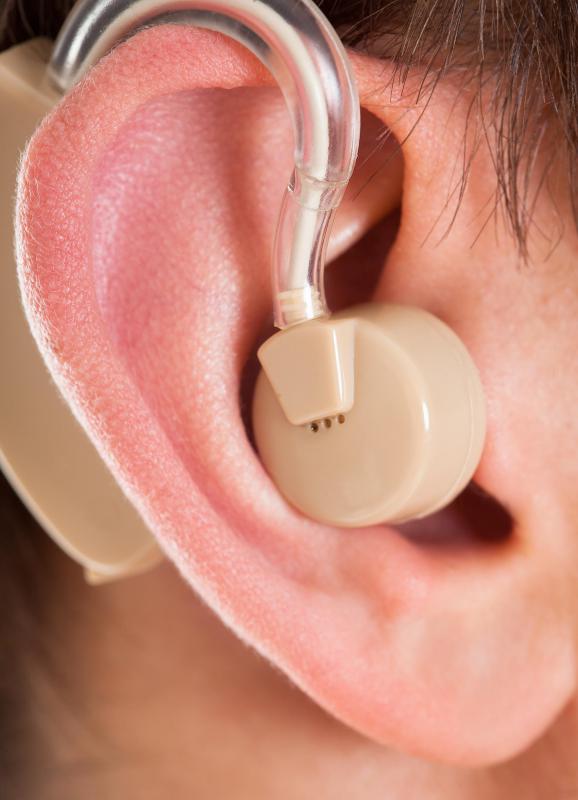At WiseGEEK, we're committed to delivering accurate, trustworthy information. Our expert-authored content is rigorously fact-checked and sourced from credible authorities. Discover how we uphold the highest standards in providing you with reliable knowledge.
What Does a Hearing Specialist Do?
Commonly referred to as an audiologist, a hearing specialist is a medical professional trained to diagnose hearing difficulties and levels of hearing loss. Individuals who are hard of hearing often seek the aid of a hearing specialist to determine the cause of their hearing problem. The equipment used by audiologists assist in determining the extent of hearing loss in an individual and enables the diagnosis of any possible illnesses or conditions.
Hearing specialists may work together with a patient’s physician or family doctor to properly diagnosis and treat the patient for a specific hearing condition. The audiologist is responsible for providing a variety of treatment options to a hearing impaired individual. In addition, the hearing specialist is qualified to distribute and fit a patient for a hearing aid if needed.

Audiometric testing is often the method used by hearing specialists to determine the extent of hearing impairment in an individual. A hearing specialist may perform a variety of tests using an audiometer that allows them to evaluate the patient’s hearing levels and the intensity of various sounds. The patient is placed in a sound-proof booth to eliminate any external or background noises. Both ears are tested with sounds that vary in intensity from high to low through headphones. From this test, the specialist should be able to more clearly understand the amount of hearing loss the patient has undergone.

After receiving the results of the audiometric testing, the hearing specialist will determine the severity of hearing loss and provide the patient with treatment options. If no serious medical conditions are found, the audiologist may suggest hearing aid options or other devices that could possibly help restore a portion of the patient’s hearing loss. The specialist can help determine which type and style of hearing aid or device might be appropriate for the patient. Counseling may also be provided to help patients cope with and adjust to life with their hearing impairments.

If a serious condition is found or a hearing specialist feels that additional medical attention is needed, the patient may be referred to an ear, nose, and throat specialist or other physician for further treatment. In cases of severe hearing loss or deafness, surgery may be required. Some hearing loss may be too severe for the patient to benefit from the use of a hearing aid. It may be necessary for the hearing specialist to surgically fit the patient with cochlear implants to help restore a portion of his or her hearing.
AS FEATURED ON:
AS FEATURED ON:














Discuss this Article
Post your comments